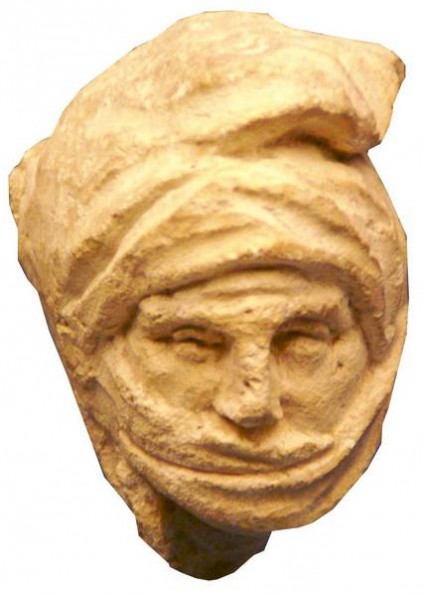Atropates
Atropates (Persian Âtarepâta) (c.370- after 321): Persian nobleman, played an important role in the restoration of Zoroastrianism after the persecutions by Alexander the Great.

Nothing is known of Atropates' early career, but it is certain that his parents were Zoroastrians (that is, the followers of the teachings of the legendary prophet Zarathustra): this can be inferred from his name - Âtarepâta ("keeper of the fire") was one of the sons of Zarathustra. The family of Atropates must have been rich and influential, because their son was satrap of Media.
Atropates was one of the generals in the Persian army in the battle of Gaugamela; as satrap of Media, he commanded one of the most important contingents in the army of king Darius III. The battle, which was fought on 1 October 331 BCE, had a disastrous outcome: the enemy, the Macedonian king Alexander the Great, was victorious and -as it turned out- the Achaemenid empire was unable to recover.
During the winter, Atropates offered hospitality to his king in Ecbatana (modern Hamadan), the capital of Media. Darius tried to recruit a new army, but it was not yet ready when Alexander, who had razed the Persian capital Persepolis, approached in June 330. The king fled to the East and was killed, and Atropates surrendered to the conqueror. He was reappointed, because Alexander wanted to win the native nobility to his side. (Other Persians that received important offices in Alexander's realm, were Artabazus and Mazaeus.)
Ecbatana was the bridge between Mesopotamia and the Mediterranean and the eastern satrapies; because Alexander had to campaign in the East, it was essential that the satrap of Media was a reliable man. Atropates was reliable indeed; when Alexander's right hand man Parmenion was killed in Ecbatana, he managed to keep the country at rest. And in 324, he arrested a rebel named Baryaxes (he had claimed to be king of Medes and Persians) and brought him to Alexander when he visited the religious capital of Persia, Pasargadae.
Atropates traveled with Alexander to Susa, where his daughter married to one of Alexander's most important generals, Perdiccas (text). In the autumn and winter of 324/323, he entertained Alexander at Ecbatana, and offered the king the remarkable present of one hundred female warriors. The king may have needed the entertainment, because his closest friend Hephaestion had died shortly after his arrival at Ecbatana.
Half a year later, Alexander died and the Macedonian commanders divided the satrapies during the conference at Triparadisus (320). Media was divided; the southern part, which controlled the road from West to East, was given to a Macedonian named Peithon, but the northern part remained Atropates' realm. This is the last we hear of Atropates from Greek sources. He is almost absent from the histories of the wars of the Diadochi. However, Atropates' name lives on in the name Azerbaijan, a province in the north of modern Iran. (Not to be confused with the country that has the same name.)